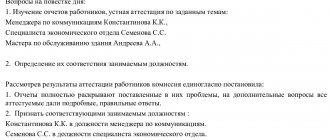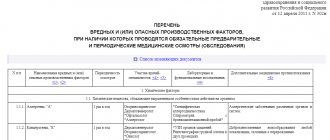Conducting extraordinary medical examinations, in contrast to preliminary, periodic and daily ones, is practically not regulated by law. This type of medical examination is mentioned as an inalienable right of an employee by the Labor Code of the Russian Federation, but the procedure for conducting it today raises questions among both employers and members of the workforce. At whose expense are extraordinary medical examinations carried out? Who initiates them? Does an employer have the right to demand an extraordinary medical examination? Let's figure it out.
compensation for medical examination expenses required for a temporary employee?
Reasons and necessity for the procedure
First of all, you need to understand the essence of the concept and the procedure for regulatory regulation of this issue. A medical examination is an event that is carried out to detect pathological processes in the body or determine the factor of their development.
An inspection is necessary not only to preserve the health of the employee and the safety of the production process, but also to protect consumer rights when purchasing goods. The law establishes a division of medical examinations into three types. Extraordinary is carried out as a result of the occurrence of special situations.
Is there an obligation on the employer?
Regulatory acts practically do not regulate extraordinary medical examinations at the initiative of the employer. The legislation only establishes the obligation to check the health status of the following categories of workers:
- for persons who have not reached the age of majority; for workers who work on a rotational basis or in the northern region;
- for persons who perform work in conditions hazardous to life and health;
- employees whose activities relate to driving a vehicle;
- catering and trade workers;
- persons who are engaged in teaching activities;
- employees of medical, law enforcement and sanitary institutions.
As a rule, the obligation relates to initial and routine inspections. But there are a number of situations in which a medical examination is required, regardless of the plan. Necessity arises as a result of special circumstances. It is worth considering each case in more detail.
According to the order of regional authorities due to the deterioration of the sanitary and epidemiological situation in the area. In this situation, the employer may be obligated to send employees for medical examination.
On the other hand, he can independently take the initiative, acting in the interests of the employee in accordance with increased labor protection measures.
When a complaint is received by an organization that contains a complaint against a specific official in connection with a possible illness, the employer is obliged to respond appropriately. Also, the employee is sent out of turn for examination when other employees apply.
At the request of authorized bodies. If a labor inspectorate official suspects a possible pathology in an employee of the enterprise, the employer is obliged to issue a referral for examination at a medical institution.
As a result of an industrial accident or emergency, the employer sends staff to check the health status in order to timely identify or prevent negative consequences.
If, as a result of an assessment by experts, working conditions are determined to be harmful or if the activity of the enterprise changes, employees are required to be sent for an unscheduled medical examination.
The purpose of the test is to determine the state of health and the ability to perform job duties in new conditions. Before allowing an employee to work, the employer must ensure that his condition allows him to perform the work.
Note! In these situations, the employer is obliged to issue a referral and the employee to undergo a medical examination. Otherwise, he is suspended from performing official duties.
Consultantplus: forums
Present to the medical organization a referral for a medical examination, a medical record of an outpatient, an employee’s health passport and the decision of the medical commission that conducted a mandatory psychiatric examination (in cases provided for by the legislation of the Russian Federation). Based on the results of the examinations, the medical organization summarizes the results of periodic medical examinations of workers and, together with the territorial bodies of Rospotrebnadzor and representatives of the employer, draws up a final report in four copies. One copy of the act is kept in the medical organization that conducted periodic medical examinations for 50 years, one is sent to the employer, one to the occupational pathology center of the constituent entity of the Russian Federation, and, finally, the last one to the territorial body of Rospotrebnadzor.
This is stated in Part 2 of Article 74 of the Labor Code of the Russian Federation. If the employee agrees with the upcoming changes, it is necessary to draw up an additional agreement to the employment contract (Article 72 of the Labor Code of the Russian Federation). If the additional agreement is not executed in a timely manner, but the employee continues to work under the new conditions after notification of the changes, this means that the employee has actually agreed to such changes.
How to refer an employee for a medical examination
If it becomes necessary for an employee to undergo a medical examination, it is necessary to adhere to the regulated procedure and correctly document the procedure.
The legislation does not provide specific guidance regarding employer initiatives. A mandatory referral is issued only in situations listed above.
In general, an inspection is carried out out of turn in accordance with the requirements of the relevant authorities in the field of labor protection. An employee also has the right to independently contact the management of the enterprise with a request to undergo a medical examination.
In other situations, the employer can only send staff to a routine or primary medical examination.
If an employee suspects illness, they first contact a medical institution, which conducts routine checks of the employee’s health. A letter is sent to the chief physician with a detailed description of the symptoms that raised suspicion.
Additionally, documents are attached that act as confirmation of the disease (if such documents are available).
After reviewing the letter, a referral is issued based on the recommendations received from the doctor.
The legislation does not establish a strict template, but puts forward mandatory requirements for the content of the document. The following information must be included in the direction:
- full name of the organization where the employee works;
- legal details including the form of ownership of the enterprise and type of activity;
- name of the medical institution, address;
- What type of medical examination is it issued for?
- personal data of the employee who is sent for a health check.
The document also indicates the position and working conditions. The direction is recorded in a special journal. Then the employer issues an order for a specific employee to undergo a medical examination.
The costs of the inspection are paid by the employer.
Extraordinary medical examination at the initiative of the employer
According to Article 214 of the Labor Code, personnel are required to undergo medical examinations. They can be carried out according to schedule, but in some cases surveys are unscheduled. Employees have no right to evade them.
Download documents from the article:
Sample log of the issuance of referrals for medical examinationDOC file Other required documents
The procedure for undergoing medical examinations is established in the order of the Ministry of Health and Social Development of Russia dated April 12, 2011 No. 302n.
When are extraordinary medical examinations of employees carried out?
Labor law does not provide a clear list of situations in which an employer can initiate an unscheduled medical examination. In practice, this most often happens if:
1. A deterioration in sanitary and epidemiological indicators has been registered in the city (region). In this case, the order can come either from the employer himself or from the relevant authorities. For example, if an outbreak of an infectious disease is recorded.
2. The employee has received complaints from third parties (most often clients) or colleagues.
3. There was a suspicion that the employee was feeling unwell and was hiding it from his superiors. A competent specialist must decide whether a medical examination is necessary. You can inform the institution that conducts routine medical examinations, for example, write a letter to the chief physician.
4. An emergency has occurred in the organization, the consequences of which may affect the health of personnel.
5.Working conditions have changed at the enterprise
6. An instruction has been received from the State Tax Inspectorate or SES.
In all these cases, the employer has the right to send employees (all or part of them) for an extraordinary medical examination. And if the reason was an order from regulatory authorities, then this is already an obligation.
Download from the Occupational Safety and Health System
- Sample order for sending employees for a medical examination
How to submit a referral
There is no established pattern for referral for an unscheduled medical examination. It is compiled in any form. However, the following information must be included:
- exact and full name of the employing organization;
- details of the enterprise;
- name and details of the receiving medical institution (including actual address and OGRN code);
- information about the employee sent for examination - full name, position, structural unit;
- harmful and dangerous factors associated with the employee’s work activity and the type of medical examination (scheduled, extraordinary).
The referral is issued in person, but before that it must be registered in the register of issued referrals to the Moscow Region.
journal for issuing referrals for medical examination
Employee's right to refuse
An employee does not have the right to avoid undergoing an examination in situations established by law. If the referral was issued on the basis of a doctor’s recommendations, then refusal of a medical examination entails the suspension of the specified employee from work, and even dismissal from work. Let’s consider the situation in more detail.
The employer first requires a written explanation indicating the reasons for refusing a medical examination.
Then, regardless of the provision or lack of explanations from the employee, an order of suspension from work is issued. For the period during which the employee was suspended from performing duties, wages are not paid.
If the reasons why an employee did not undergo a medical examination are unjustified, he will be reprimanded. An order is issued indicating a new deadline for checking the health status. Repeated refusal to undergo a medical examination is grounds for dismissal from work as a result of repeated violations of discipline.
Note! Statement of health from other medical organizations is not accepted. The examination must be carried out in the institution with which an agreement has been concluded for the examination of employees.
On whose initiative and direction an unscheduled medical examination can be carried out
The law does not provide a clear list of persons who can initiate the referral of an employee for an unscheduled medical examination, but a conclusion about this can be drawn based on an analysis of regulations. Thus, the Labor Code of the Russian Federation and Order of the Ministry of Health and Social Development of the Russian Federation No. 302n explain in what cases such a right is given to the employer, and clause 6.3 of the Regulations on the Federal Supervision Service ..., approved by Decree of the Government of the Russian Federation of June 30, 2004 No. 322, makes it possible to conclude that that Rospotrebnadzor has such a right to make decisions within the sphere of activity entrusted to it.
In addition, every citizen of the Russian Federation has the right to undergo an extraordinary medical examination on the basis of Part 1 of Art. 219 Labor Code of the Russian Federation. Moreover, in accordance with Art. 214 of the Labor Code of the Russian Federation, an employee is obliged to inform the employer about the deterioration of his health and the possible development of occupational diseases. However, in order for such an examination to be paid for by the employer, the employee must contact the employer and ask for an appropriate referral to an institution with which the enterprise has an agreement to provide medical services to employees. The employer is not required to pay for an unauthorized medical examination. If the employee was absent without permission, without notifying the employer, and refers to undergoing an examination, then he must submit documents confirming this fact for justification, which does not cancel the fact of the disciplinary offense and does not oblige the employer to pay for it.
The responsibilities of Rospotrebnadzor include monitoring the sanitary, hygienic and epidemiological situation in the territory under its jurisdiction. Based on clause 6.3 of the regulations, approved. By Decree of the Government of the Russian Federation No. 322, territorial bodies of Rospotrebnadzor can issue written instructions for sending employees for extraordinary medical examinations. For example, in the event of an incidence of tuberculosis at a particular enterprise, it is possible to order an extraordinary fluorographic examination of all its employees.
The employer can also initiate an unscheduled medical examination of employees. For some categories of workers provided for in regulations, it will be mandatory.










